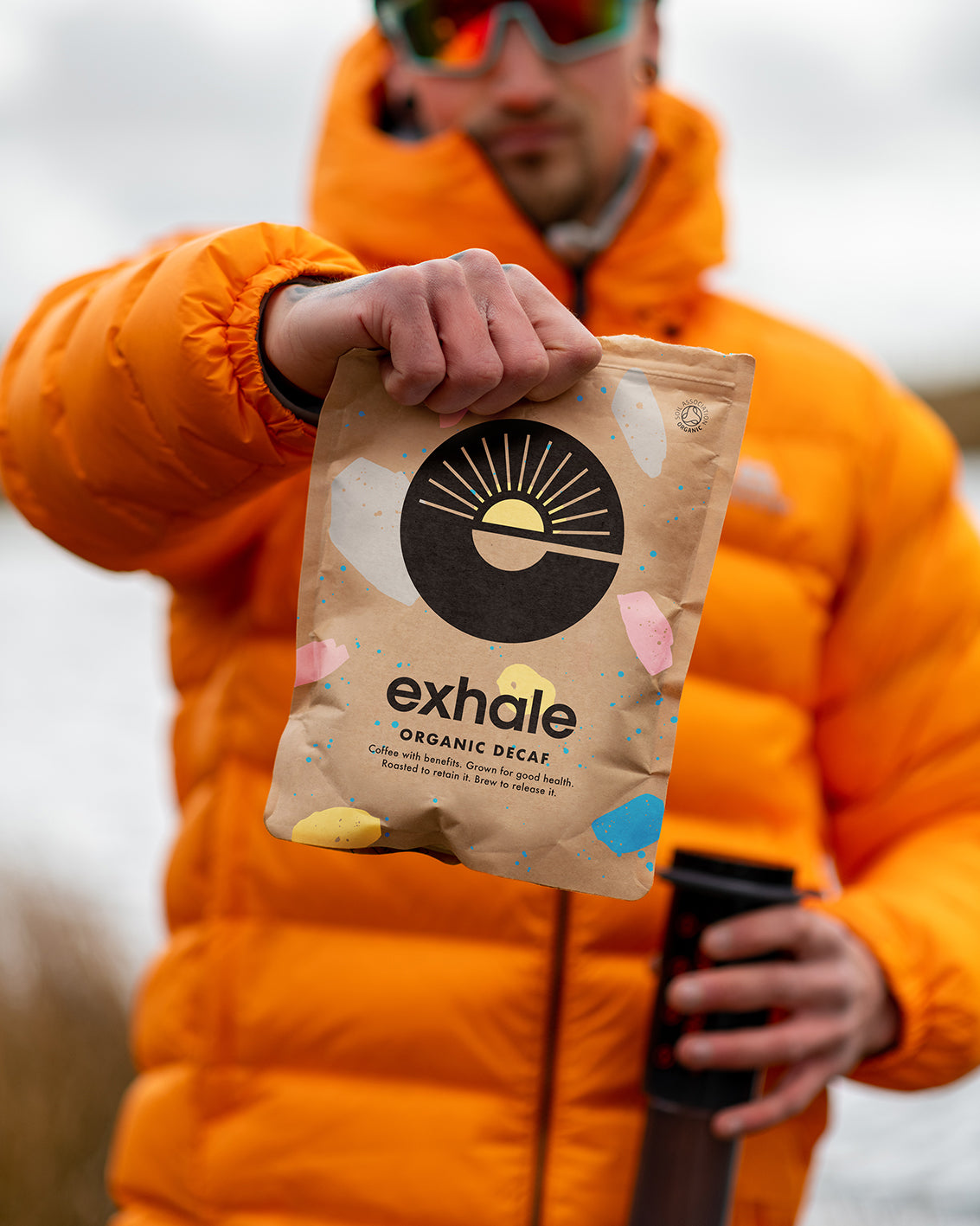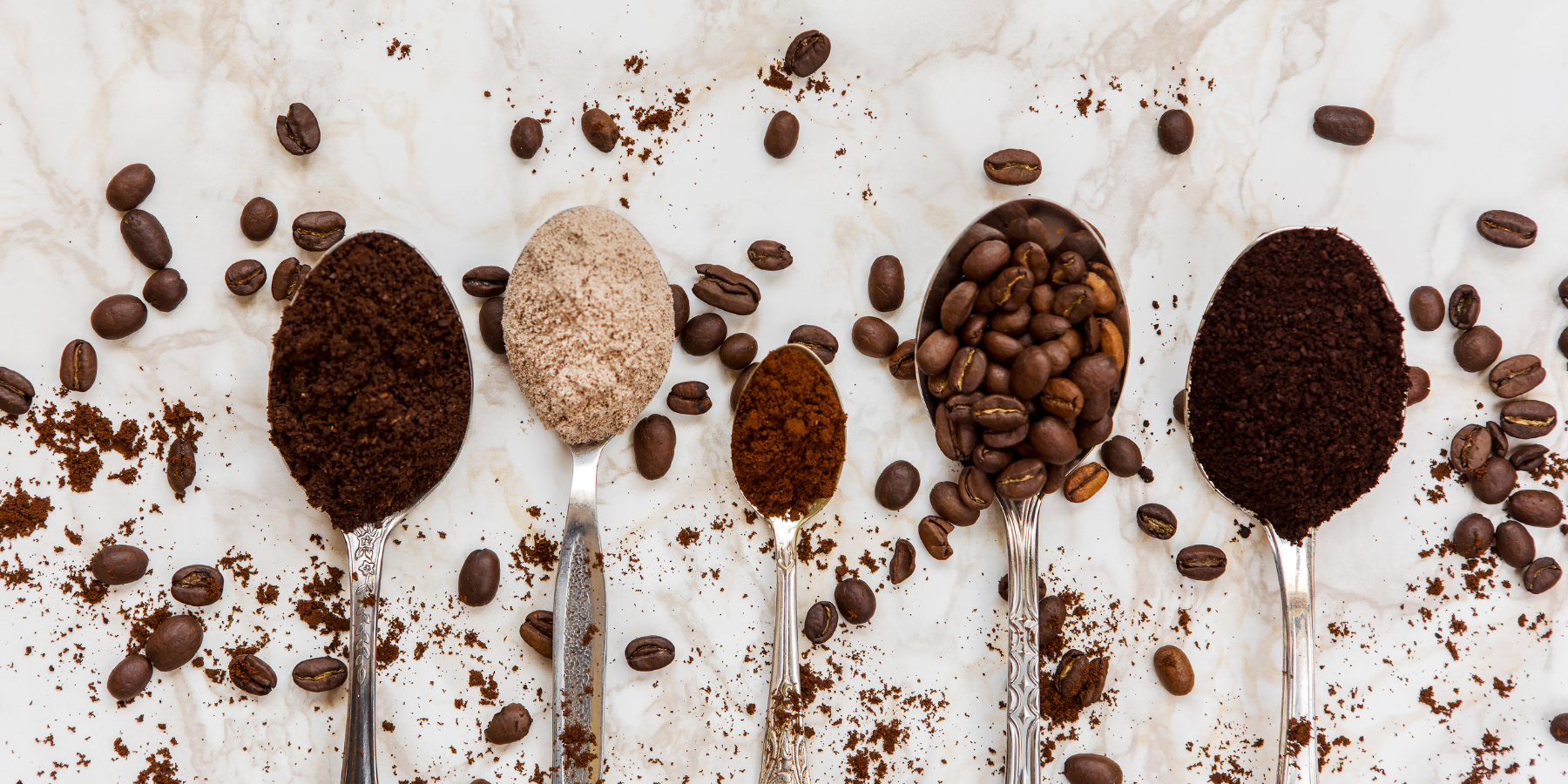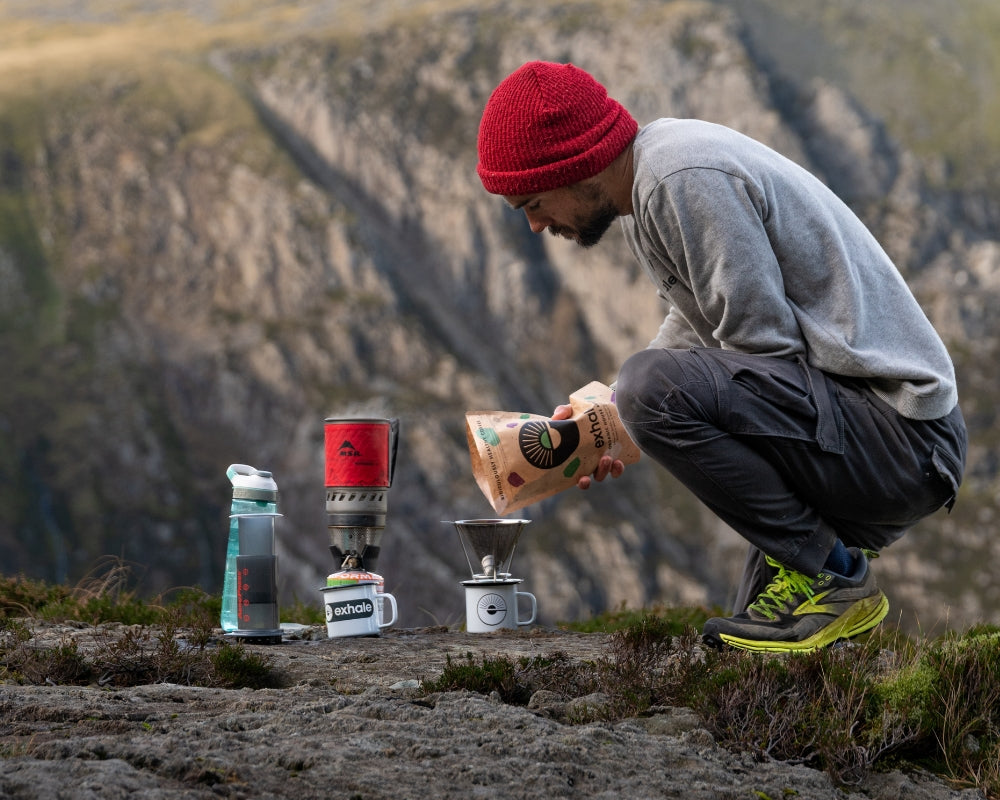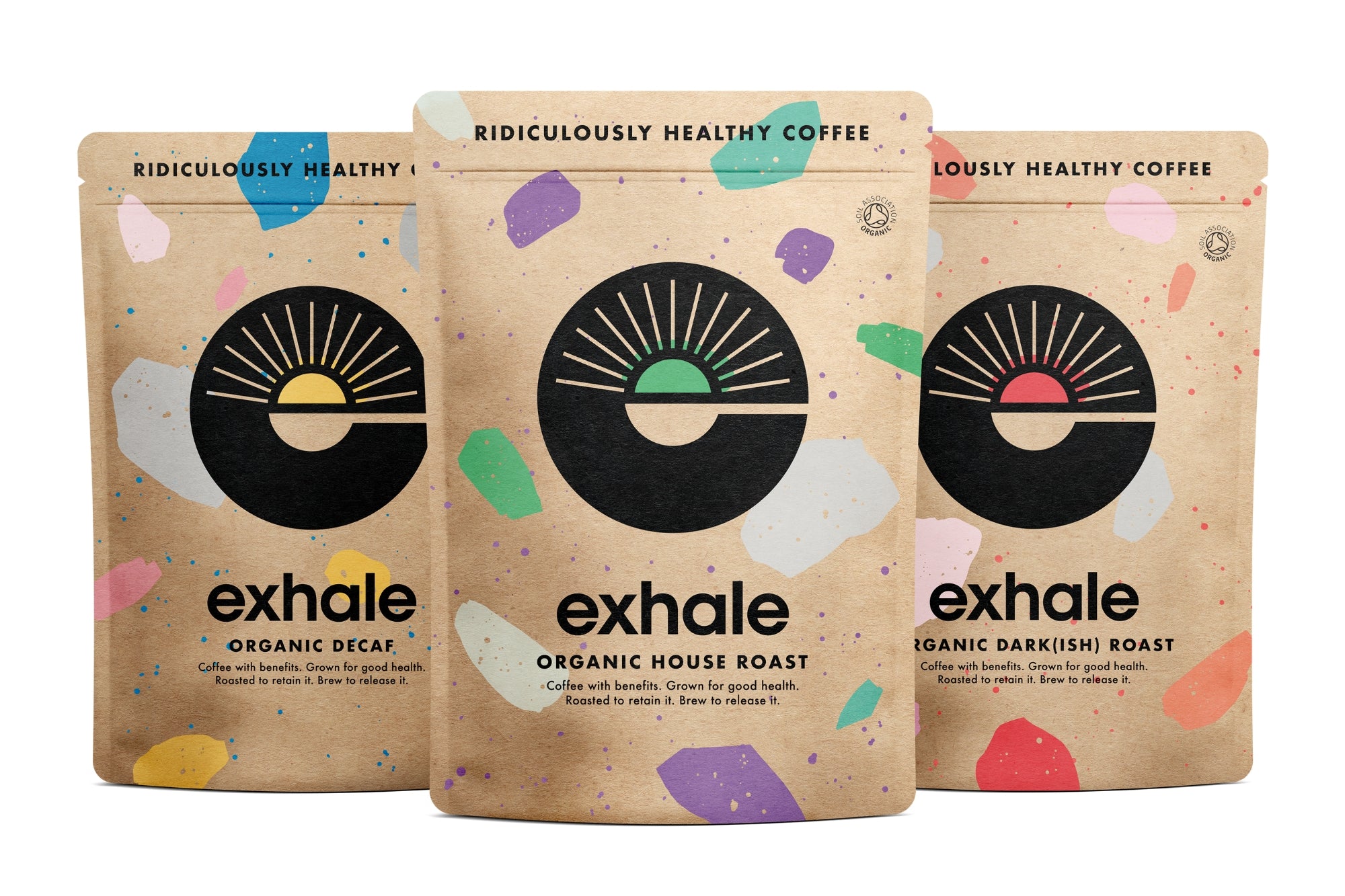When it comes to all the benefits of coffee, most people (and the scientific studies too), tend to talk about them in relation to caffeine.
But, caffeine is just one element of coffee. There are actually over 1000 compounds in coffee itself. Many of them beneficial, whether or not caffeine is present too.
Decaf is actually just as good for you as regular coffee – in all ways really, except for the caffeine. We’ve detailed just a few of them below.
First up though – how do we make it decaf?
Well, unlike a lot of other coffees, we use a chemical-free process to decaffeinate our beans. We use the mountain water process, rather than any harmful chemicals.
To decaffeinate our organic coffee we use the purest spring water from the highest mountain in Mexico, Pico de Orizaba. Here's a photo of said mountain:

The process works by immersing the green beans in water to extract the caffeine, while helping to protect the original characteristics of the coffee.
When decaffeinating coffee using chemical methods, it leeches out more of the beneficial compounds in coffee – meaning that usually, if you drink decaf – you could be missing out on more than just caffeine.
Let’s talk niacin
Did you know that coffee contains a high percentage of niacin, also known as vitamin B3?
In our own lab tests, we found out that two cups of decaffeinated exhale coffee contains 20% of your daily recommended intake of niacin (vitamin B3), which is actually the exact same as in our regular caffeinated coffee. So, health-wise – that means you can feel pretty good about your vitamin B3 intake, before you’ve even eaten a thing.
Fun fact: Aside from meat, exhale coffee is one of the top dietary sources of vitamin B3. Mind = blown.
If you’re wondering why niacin/vitamin B3 is important, here’s the tldr. It can help to:
- Increase your energy
- Support your brain
- Provide psychological support
- Help you deal with stress
- Reduce tiredness and fatigue
All non-negotiables. As far as we’re concerned.
Awesome autophagy
Have you heard the hype about intermittent fasting? More and more people are choosing to fast for certain portions of time, in search of its reported health benefits. Studies have shown that intermittent fasting can help with sleep, gut health, cardiovascular health... the list goes on.
The reason for all these health benefits appears to be because, at least in part, because of a process called autophagy.
It sounds like a horrible choking condition, but it isn’t. Bear with us.
Discovered by Japanese scientist, Yoshinori Ohsumi (who actually won a Nobel prize in science for it in 2016), autophagy is the name of the process that occurs when damaged cells are digested by the body and recycled to make way for shiny, new cells. It’s derived from the ancient Greek term for “self-eating”, which makes perfect sense when you think about it.
Autophagy is a naturally occurring process within the body that, it’s reported, can be encouraged by fasting. After about 12 hrs of fasting, the body starts "self-eating" old dead cells, and replacing them with lovely fresh, healthy cells.
But what does all this have to do with coffee? Decaf or otherwise?
Well, in an in vivo study done in 2014 on mice – it showed that both caffeinated and decaffeinated coffee stimulates autophagy.
So, if like us, you’re experimenting with intermittent fasting overnight, we’d suggest having a decaf coffee before bed, to speed up the autophagy cellular cleansing effects. Plus, it’s delicious, so really a win-win.
Polyphenol power
We tested our coffees side by side, toe to toe, caff to decaf – and the decaf actually contained marginally more polyphenols than our regular coffee.
It's actually down to the weight of the beans and the roast degree – but we won’t get too deep into that. Or you'll need to switch to regular to stay awake.
Anyway, more polyphenols = good news, as you then get more of the health benefits too. (Well almost the exact same as our regular coffee.)
Polyphenols – as a refresher – are the antioxidant and anti-inflammatory compounds in coffee that are the reason for the most famous of coffees health benefits. (And, incidentally, what we maximise for in our roasting process. Exhale actually has 40% more polyphenols than other coffees on the market.)
Which if you’re an athlete is great news, as coffee’s ability to ramp up your exercise performance is all down to the polyphenols. It can also be really good to add in a decaf later in the day as it contains the same compounds that can help with muscle recovery. When you work out intensely, the body creates oxidative stress – the antioxidants from polyphenols help to combat that and get you back to status quo. You can read more about antioxidants for athletes here.
Even for non-athletes, it might be that you prefer to drink caffeinated coffee in the morning and then switch later in the day. So that, depending on your individual tolerance of caffeine, you’re still benefitting from the extra polyphenols and antioxidants and all the other healthy compounds in coffee but not having to drink caffeine later in the day and compromise on your all-important sleep.

If you want to know more brilliant benefits of exhale coffee – decaf or otherwise, click here to check out our lab test reports. And if you'd like to shop our organic chemical-free coffee, head here.





6 comments
shrea kuile
It is an informative and learning topic on the health benefits of decaf coffee. Thanks for sharing the useful blog. You mentioned the nutrients and health benefits of decaf coffee. Although I drink black coffee and reap its health benefits, I learned a lot about decaf coffee from your topic. How much decaf coffee can a heart patient drink daily? I like your blog and also prefer organic products.
Chris
Hi to you all at Exhale.
I landed on your site randomly and ordered your decaf, also almost at random. I am so glad that I did. You have opened the door to a new world of coffee for me.
Thank you, Exhale
Lulu
I love the Exhale decaff coffee beans. The coffee tastes great and doesn’t have any feelings of toxicity or jitters. Highly recommend this for anyone who is highly sensitive to the effects of caffeine.
Victoria Davies
I am so grateful you are making this clean decaf! So worth paying more for as it’s not only clean but is the tastiest decaf I ever tried, regular decaf can be so bad for you due to the processes and chemicals.
Susan
All this information you are providing is so well presented. Your passion for coffee and its amazing benefits clearly communicated. I have learned so much from your emails in just a few days. I’ve never been a lover of coffee I’m hoping after trialing Exhale all that will change. Thankyou
Leave a comment
All comments are moderated before being published.
This site is protected by hCaptcha and the hCaptcha Privacy Policy and Terms of Service apply.